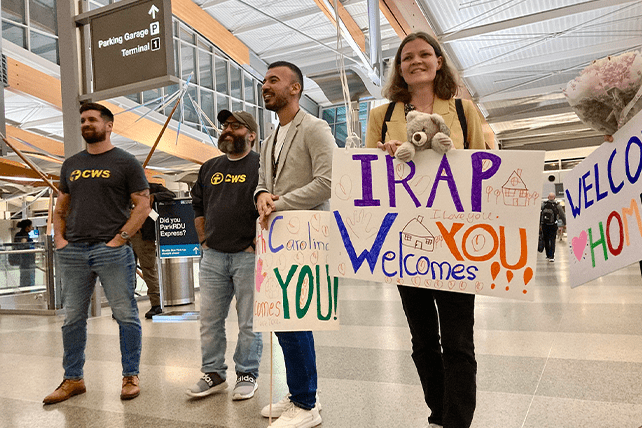(RNS) — Ahead of a formal opinion, a federal appeals court temporarily ruled Friday (Sept. 12) that the Trump administration can suspend refugee admissions, staying previous legal decisions that had required the administration to admit some refugees who already had travel plans to the U.S. before the suspension was announced.
The U.S. Court of Appeals for the 9th Circuit also ruled that the administration cannot stop providing services to refugees after they arrive in the U.S.
The stay is the latest development in Pacito v. Trump, a lawsuit brought by Church World Service, HIAS, Lutheran Community Services Northwest and individual refugee families. The case challenges both the Trump administration’s suspension of refugee admissions and its funding freeze for refugee resettlement agencies.
The decision received a mixed reaction from the plaintiffs.
Mark Hetfield, president and CEO of HIAS, a Jewish organization that works with refugees, told RNS the decision leaves “thousands of DHS vetted and approved refugees stranded, their pathway to safety taken away from them.” He added, “On the other hand, we welcome the 9th Circuit’s finding against President (Donald) Trump’s attempt to shut down resettlement services to recently arrived refugees.”

Danilo Zak. (Photo courtesy of Church World Service)
Linda Evarts, senior supervising attorney at the International Refugee Assistance Project, the group representing the plaintiffs, said the appeals court order “makes clear that it was against the law for the State Department to withhold vital benefits Congress provided for refugees to help them settle into their new lives in the U.S.”
Danilo Zak, director of policy at Church World Service, called “the requirement for the administration to reinstate cooperative agreements and serve thousands of those who have already arrived,” including many Afghan Special Immigrant Visa holders, “a major victory.”
The Trump administration has said 12,000 refugees had already been vetted and had their tickets booked when it suspended refugee admissions on Jan. 20. The administration has also confirmed that before the suspension, more than 128,000 people had been conditionally approved for refugee status.
Evarts emphasized that those refugees “remain in limbo, fleeing danger and separated from their families.”
“Every day that the refugee ban remains in place, their lives hang in the balance,” she said.

